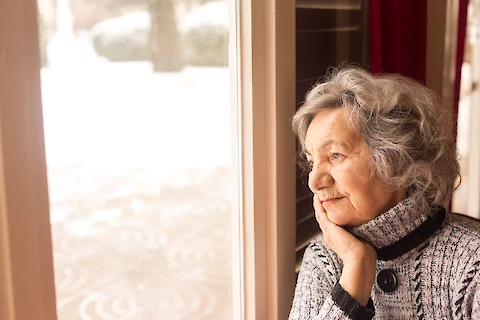
Should You Check on Elderly Relatives Daily in the Winter?
There's no easy answer to how frequently people should check on their elderly relatives. It depends on the family member. How active are they? Is their home winterized? What medications are they taking? Answering these questions can help determine if an elderly relative needs a daily check during winter.
Is the Home Winterized?
As Dunn's fall fades into winter, days get shorter, which means elderly family members will spend more time in the dark. To ensure their waking hours are as safe as possible, check on the following before winter arrives:
- Check that walkways are clear of any obstacles and that adequate lighting is in place.
- Make sure interior lights are working and replace light bulbs if necessary.
- Replace batteries in carbon monoxide and smoke detectors.
- Clear gutters and downspouts.
Because snowfall amounts vary yearly in Fayetteville and Elizabethtown, make arrangements for sidewalk shoveling and snowplowing before the first snow falls.
Are Elderly Relatives Mobile?
If senior loved ones have mobility limitations, perform the same outdoor checks inside.
- Make the home as free of obstacles as possible.
- Install more lighting.
- Consider motion-sensing devices for better lighting.
- Tighten safety rails and stair railings.
If senior family members are active, find ways to keep them mobile during the winter. Seniors must remain as active as possible, whether it's a local exercise class or at-home yoga.
Do Elderly Family Members Have Adequate Heat During Winter?
With rising heating costs, those living on a fixed income may lower their thermostats to save money. If indoor temperatures drop below 65°F, elderly relatives may be at risk for hypothermia. To minimize their risk, do the following:
- Explain how hypothermia can happen.
- Ensure they have sufficient sweaters and blankets.
- Make sure they dress in layers.
- Switch to flannel bedding and add extra blankets.
- Purchase warm no-slip slippers to keep their feet warm.
- Winterize the house by replacing windows and door seals.
- Check the attic for potential leaks.
Winterizing their home not only makes it safer for elderly relatives but also gives them peace of mind.
Do Elderly Relatives Have Chronic Health Conditions?
Senior family members with chronic health conditions that require medication or lifestyle changes may need more frequent check-ins. To avoid last-minute emergencies, try the following tips:
- Check all prescriptions for refills.
- Sign up relatives for home delivery of medications.
- Ensure they have transportation for medical services.
The more prepared they are, the safer they'll be during winter.
How Often Should You Check in With Elderly Family Members?
If elderly family members are comfortable with technology, a daily text or email would be a quick way to check in. Include a more detailed check once or twice a week. Seniors with health concerns may require a phone call or in-person visit multiple times a week. Multiple in-person weekly visits may be unreasonable during the winter months if a family lives in counties such as Cumberland, Robeson, or Johnston.
If you need help making sure your elderly relatives are safe during the winter months, contact Senior Helpers Dunn in North Carolina. Our trained staff offers home care and companionship. We can provide that check-in visit when weather or schedules get in the way.